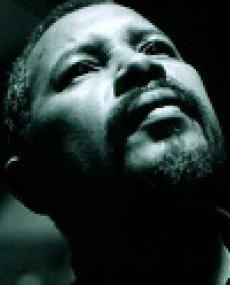
A self-taught pianist, saxophonist, guitarist, composer and arranger
Bhekumuzi Hyacinth Mseleku was born in Durban in 1955. A self-taught pianist, saxophonist, guitarist, composer and arranger, he was born to a musician father who did not want any of his children to follow a music career. His father owned a piano that he kept locked, but Mseleku’s mother would unlock it for her son when his father was away. Eventually, his father, Mseleku Senior, would come to appreciate his son’s love for music and allow him to play the piano. Unfortunately, the piano was chopped up to make firewood one winter.
In 1975, Mseleku began his musical career when he played the organ for the band Spirits Rejoice. Feeling restricted by the apartheid system in South Africa, Mseleku left the country in 1977 and settled in Botswana for a while. He later moved to London before moving to Stockholm where he tried to infiltrate the Jazz industry. He eventually returned to London and made a breakthrough when he began playing the piano at the prominent Ronnie Scott’s Jazz club.
In 1992 Mseleku released his debut album titled Celebrations. The album featured a number of British players including Courtney Pine. The album was nominated for a Mercury Music Prize and led to Mseleku being signed by the label Verve. He would go on to produce five more albums before his death. One of these was released in 2003 and titled Home at Last, a reference to his return to his land of birth South Africa.
Mseleku won a Kora Africa All Africa music Award in 1996 in the category Best Instrumentalist (Southern Africa). He was never truly happy in south Africa because of the bad experiences that he associated with the country. One of these experiences was a childhood go-carting accident where he suffered injuries to the upper joints of his right hand. Mseleku believed that had it not been for apartheid, he would have been able to receive treatment and possibly made a full recovery. He also did not take it well when his house was broken into and items of sentimental value were stolen. The failure to match the success he had enjoyed abroad in his home country also led to further disillusionment on his part.
In 2006 he returned to England hoping to revive his dwindling career. He died in 2008 in London having suffered from bipolar and diabetes for years. Journalist Todd Matshikiza once described Mseleku as an artist who almost was as if he wanted to become music itself, rather than a practitioner of it. Mseleku used to think of himself as a citizen of the world. This was clearly evident in his inability to settle in one place for too long.